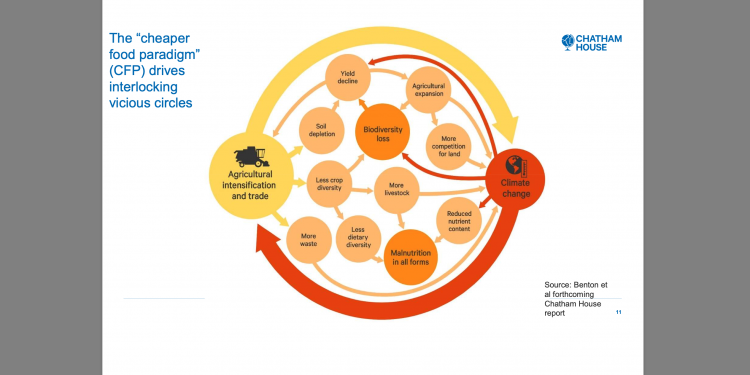Farmers need to be rewarded for less but better production – and the cheap food business model re-designed, according to academic Tim Benton, who addressed the Oxford Farming Conference this week.
The true cost of current food production is not reflected in pricing, given that in the UK pollution from fertilisers is costing £5 billion, greenhouse gas pollution costs £3 billion and the silting of water courses costs £61 million. Poor diet is costing the health system up to £50 billion.
Political leadership was required to refocus the food system away from productivity growth at all costs, he said.
“We need greater recognition of the values associated with food. Stop just thinking about driving prices down,” Professor Benton said.
“… It’s not just about growing the same things in a slightly different way, it’s about a system redesign.” Systemic change needed socio-technical bundles, or change across social, economic and governance arenas.
“More multi-functional landscapes lead to more rural employment”
He showed that the gap between the diet we should be eating and the food being produced is so wide that if everyone on the planet tried to access a nutritious diet they would not be able to.
While 50% of what we eat should be fruit and vegetables, in fact they make up just 17% of production. Conversely, 41% of production goes to cereal and starches which should make up 26% of a nutritious diet.
In explaining the environmental impact of food production, Professor Benton explained one kilo of tofu emits on average 25 times more greenhouse gases than a kilo of beef, and takes 75 times more land to produce.
He said the new business approach should reflect:
- A focus on efficiency, such as healthy diets and sustainable, low waste, systems
- Different diets driving more diversified agriculture
- More multi-functional landscapes leading to more rural employment
- More resilient landscapes























